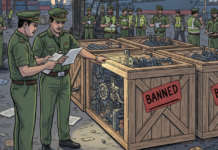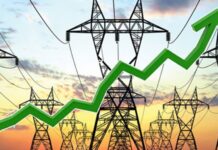The country is now veering dangerously towards a combined political and economic crisis. The IMF talks have hit an impasse over the untargeted subsidies on power and fuel announced by the Prime Minister only four days before the 7th review of the ongoing facility was to begin has cast a pall of uncertainty over the entire program. The talks for the 7th review were scheduled to end on Friday, March 11. But that date came and went without an announcement, and next day reports emerged that the talks have hit an impasse and both sides have agreed to keep talking on Monday. And the same reports said that both sides were far from agreeing on a resolution, with the Fund refusing to continue with the subsidies and the amnesty scheme and the government refusing to withdraw these.
If the talks drag on inconclusively this will become the second time the government has given commitments only to backtrack on them within weeks. The 6th review had ended almost exactly one year ago, with the government committing to withdraw the Covid stimulus and pass key legislation, only to withdraw from the commitments as soon as the funds were released by the IMF. Those talks then dragged on for more than 10 months, with the government announcing a new date for the resumption of the program every few weeks, until February when accession was finally obtained. But the commitments the government had entered into specifically said no more amnesty schemes, no more untargeted subsidies, limiting recourse to State Bank intervention for exchange rate support and aiming for a small primary balance surplus by the end of the fiscal year.
Today almost all these commitments, given only weeks ago, are in doubt and the fund seems to be near the end of its patience. Another inconclusive round of talks that drags on for an extended period of time will not be taken well by the market, or by the country’s creditors. And the impact of this will inevitably land on the exchange rate, potentially fueling another round of exchange rate depreciation which in turn will fuel another round of inflation. The inflationary fire the government is trying to put out with untargeted subsidies was ignited by its zeal to kickstart growth using massive fiscal and monetary stimulus right after the Covid lockdowns were lifted. The fire was aggravated by a global price surge that followed. Today they are trying to stamp out this inflationary fire with tools that will only aggravate the problem rather than mitigate. This is a self-defeating cycle that not only goes against the commitments given by the government to the fund, but also undermines the very macroeconomic stability that it touted as its signature success in the second year of its rule. If continued, this cycle eventually carries the country towards a balance of payments crisis amidst spiraling inflation, a deadly cocktail that will require an even more tough adjustment to bring under control.
What is worrying, and what gives the moment the feel of an impending crisis, is the paralysis that has set in on the political scene at the same time. An embattled and embittered Imran Khan is now increasingly bearing the look of a weak and desperate man, flailing with all high might to hold on to power. He is lashing out at his political foes in language and political moves that smack of desperation. Meanwhile he is running with a very dangerous line in telling the country that his political difficulties have been engineered by western governments to “perpetuate the country’s slavery”. These words are particularly damaging given the deep trade and economic ties Pakistan has with the countries of the western world, but coming after a period when those capitals are already deeply unhappy with Pakistan response to the Russian invasion of Ukraine, they are making a bad situation worse. In the days to come, as the opposition’s challenge in the form of the no-confidence motion draws near, his frenzied state of mind is likely to aggravate and the pressure on him to do whatever he can to hold on to his supporters will grow. In short he is in no mood or state of mind to hear anything about difficult decisions to stabilize a wavering economy, let alone take the decisions necessary to arrest the slide towards crisis.
These twin developments – economic deterioration and political paralysis – can now drive the country towards a serious crisis. To avert this outcome, it would be better for the government to hasten the summoning of the assembly so that the no-confidence can be decided quicker rather than dragging the situation out. Protracted wrangling around the issue will only raise the political temperature and pave the way for the economy to deteriorate further.
























oo bhai imran bhai biradar muluq cheen se fori tor pay 10 bilyan dallar manga lein. IMF say koi dilog na karein. cheen biradr muluq hai. 10 bilyan maangengay, unhonay 50 bilyan dallar aesay hee day denay hain
Crisis or crises? This is what we’ve been experiencing for the last 4 years. Western nations don’t have to kill a rat that is already dead. Khan’s little brain brought Pakistan to this brink.